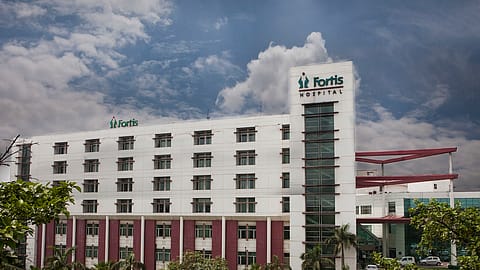Fortis, Max, Medanta to add 3,000 beds in the Delhi NCR region: Report
The private healthcare players plan to add 15,000 beds across India over the next 3-4 years, of which 5,000 beds will be allocated to the Delhi NCR region.

Hospitals in Delhi national capital region (NCR) are looking at a strong demand environment with most of them eyeing higher occupancy rates and increasing inpatient volumes. In a bid to address rising demand, three private players Fortis Healthcare, Max Healthcare, and Global Health (Medanta), which operates super-specialty hospitals, are expected to add 3,000 beds in the Delhi NCR region, generating incremental annual revenue of ₹3,500 crore, as per a report by Axis Securities.
Overall in India, the private healthcare players plan to add 15,000 beds over the next 3–4 years, of which 5,000 beds will be allocated to the Delhi NCR region to address rising demand, says the report.
“Despite a conservative expansion approach by major players, higher occupancy rates and increasing inpatient volumes are expected to drive growth,” the report notes.
As per Axis report, this additional capacity could serve 6–7 lakh new patients each year. Incremental demand is anticipated to be met by the rising growth of the health insurance segment, which is growing at an annual rate of 18%. This growth is expected to contribute an additional ₹15,000 crore in premiums and extend coverage to 33 lakh more individuals across India.
“Furthermore, we expect that the healthcare industry's average revenue per occupied bed (ARPOB) could rise to ₹61,500, representing a CAGR of 6% over FY24–FY27E. Additionally, occupancy rates are expected to improve by 300bps, reaching 64% during the same period,” the brokerage house says in its report.
Currently, India’s private healthcare industry has an industry size of ₹38,000 crore, which is projected to experience a CAGR of 13% over the next three financial years. This growth is expected to generate an annual incremental demand of ₹6,000 crore, primarily by payor, specialty mix led by oncology and cardiac, and international patient arrivals.
As per the report, payor is expected to contribute 50% of the incremental growth through insurance penetration, while international patient arrivals are anticipated to cross pre-Covid levels number of 7 lakh. These factors are expected to remain sustainable over the next three years and will significantly drive the sector's growth. Within this sector, the health insurance segment is expected to report growth of 18% CAGR over the same period.
“We believe the industry has healthy cash flow from operations, and the industry’s return on invested capital (ROIC) is projected to reach 21% by FY27E, reflecting an improvement of 400 bps over this period,” the brokerage house says.
RoIC has risen from pre-Covid high single digits to 16%, and with continued improvements in ARPOB, occupancy, and minimal capital expenditures, it is expected to grow by 400 basis points. This is expected to support elevated EV/EBITDA valuations.
The agency expects robust free cash flow to the firm (FCFF) generation, with the FCFF/EBITDA ratio rising from 20%-25% pre-Covid to 50%-55% now, driven by strong operating leverage, limited bed supply, and growing health insurance penetration
“The hospital sector currently trades at low valuations, with EV/EBITDA ratios of 25x for FY26E and 21x for FY27E, offering potential for valuation increases as RoIC and FCFF generation improves,” it adds.
(INR CR)
Axis has initiates coverage of Fortis Healthcare and MAX Healthcare with ‘BUY’ recommendations and target price of ₹860 per share and ₹1,315 apiece, respectively. It has also recommend a ‘BUY’ rating on the Healthcare Global Enterprise (HCG) with a price target of ₹575 per share.
(DISCLAIMER: The views and opinions expressed by investment experts on fortuneindia.com are either their own or of their organisations, but not necessarily that of fortuneindia.com and its editorial team. Readers are advised to consult certified experts before taking investment decisions.)